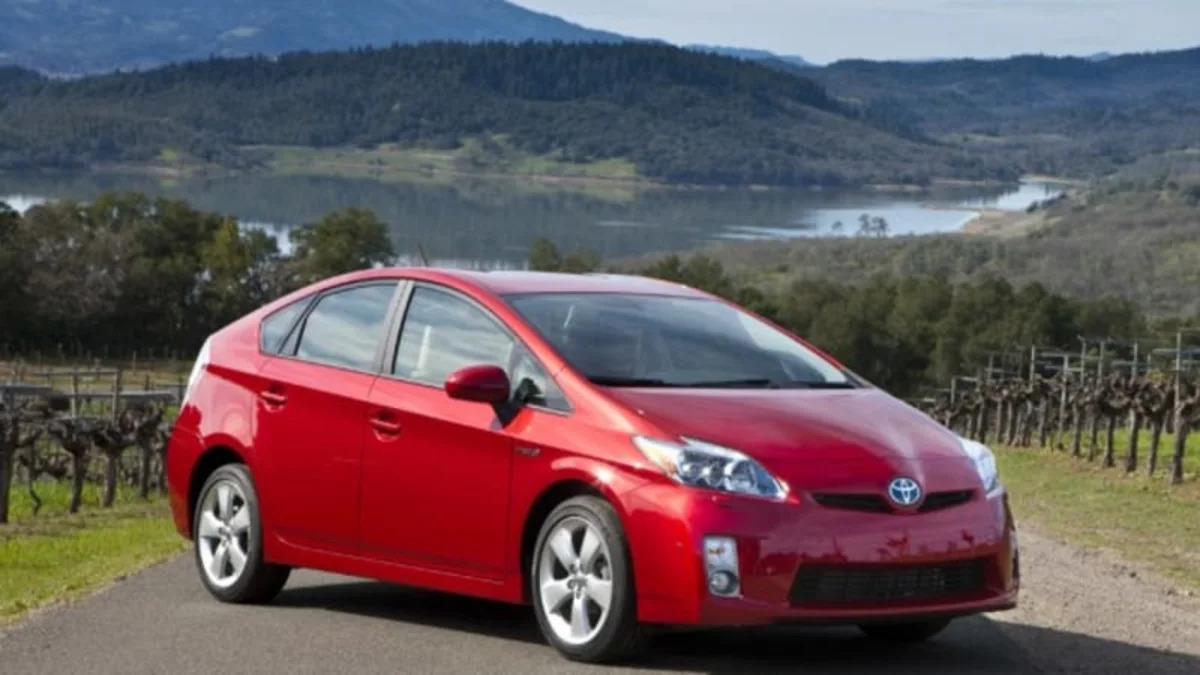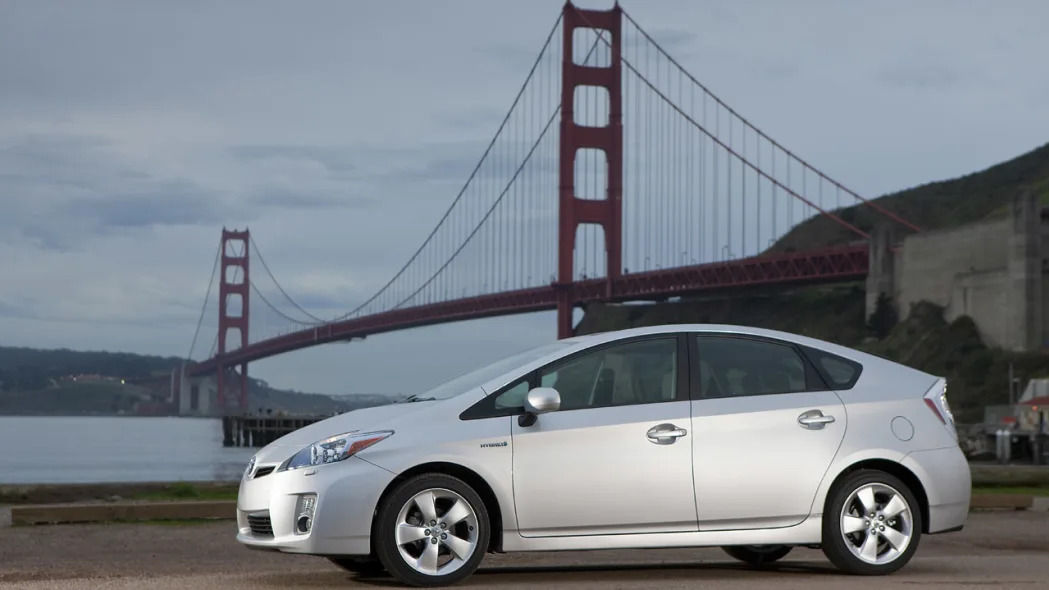2010 Toyota Prius - Click above for high-res image gallery
2009 has not been a good year for Toyota. After getting its first full year loss in seven decades, it faced its biggest safety recall ever over unintended acceleration caused by floor mats and or throttle control software. Now, as the year draws to a close, a new potential problem has sprung up, although it's not nearly on the same scale as the recall. The new problem is related to the braking system on the latest Prius, which debuted early this year.
The problem, which has been reported to National Highway Traffic Safety Administration (NHTSA) by several dozen drivers, relates to a loss of deceleration when transitioning from regenerative braking to friction braking. At this time, NHTSA has not opened a full investigation but it is monitoring the situation.
This is actually quite a complicated issue and it highlights one of the reasons why it takes automakers so long to bring cars to market. Read on after the jump for some discussion on what might be happening.
[Source: The Detroit Bureau]
The problem is that hybrids (and upcoming electric vehicles) actually have two different braking mechanisms. They have the traditional hydraulic friction braking system that has been used for most of the past century. However, they also use regenerative braking to convert kinetic energy back to electrical energy to charge the battery. The problem arises from the fact that there is only one control mechanism, the brake pedal. So electronics and complex hydraulics are used to blend the amount of braking from the two systems to provide a net deceleration in proportion to the amount of pressure the driver applies to the pedal.
This would all be fine if the behavior of both systems was completely predictable. If that were the case, both could be modeled mathematically and the estimated torque from each could be calculated. Unfortunately, friction brakes can exhibit significant variability caused by wear, humidity, temperature and numerous other factors. The controls and calibration engineers spend tens of thousands of man hours testing and developing the systems to attempt to ensure that they behave predictably and consistently in over the life of the car and under different operating conditions.
The problem reportedly being experienced on the new Prius relates to an apparent loss of deceleration when the brakes transition from regen to friction braking. Having worked on the controls for similar brake systems in a previous life as an engineer, this is not an uncommon problem. Typically, it occurs when the friction brakes are producing less torque than the model predicts.
A number of things could cause this. The most basic is the brake linings, which could have less friction than expected. In this case, the control algorithm should be able to learn and compensate for this. The problem might also be related to the pressure sensors in the hydraulic unit that are part of the closed loop control. Sensors can have erroneous signals or drift over time and temperature. Again, there are mechanisms to correct for this, but they are not perfect. Not being familiar with the details of the Prius system, we can only speculate about has changed in the new version.
Based on the information in the reports, there is one more possibility. Apparently, at least some of the owners experienced the perceived loss of deceleration after hitting a bump or pot-hole. When we reviewed the Prius, we noted that its newly revised suspension setup seemed to handle larger road imperfections well, but it was a bit over-damped on small sharp inputs. This could cause the tire to lose adhesion with the road in this case and thus start to exhibit slip. The brake system could be detecting this sudden increase in wheel deceleration (as opposed to vehicle deceleration) and proactively reducing brake torque to try and prevent impending wheel lock and the need for full-blown ABS control. If (and we stress IF) this is being done too aggressively, it could be what drivers are feeling. We never experienced any such behavior when we drove the Prius, but we wouldn't rule it out under the right conditions. If you own a third-generation Prius and have experienced anything like this, let us – and more importantly NHTSA and your Toyota dealer – know. It may not be a real problem, but if it is Toyota, will need as many data points as possible in order to diagnose and fix it.



Sign in to post
Please sign in to leave a comment.
Continue